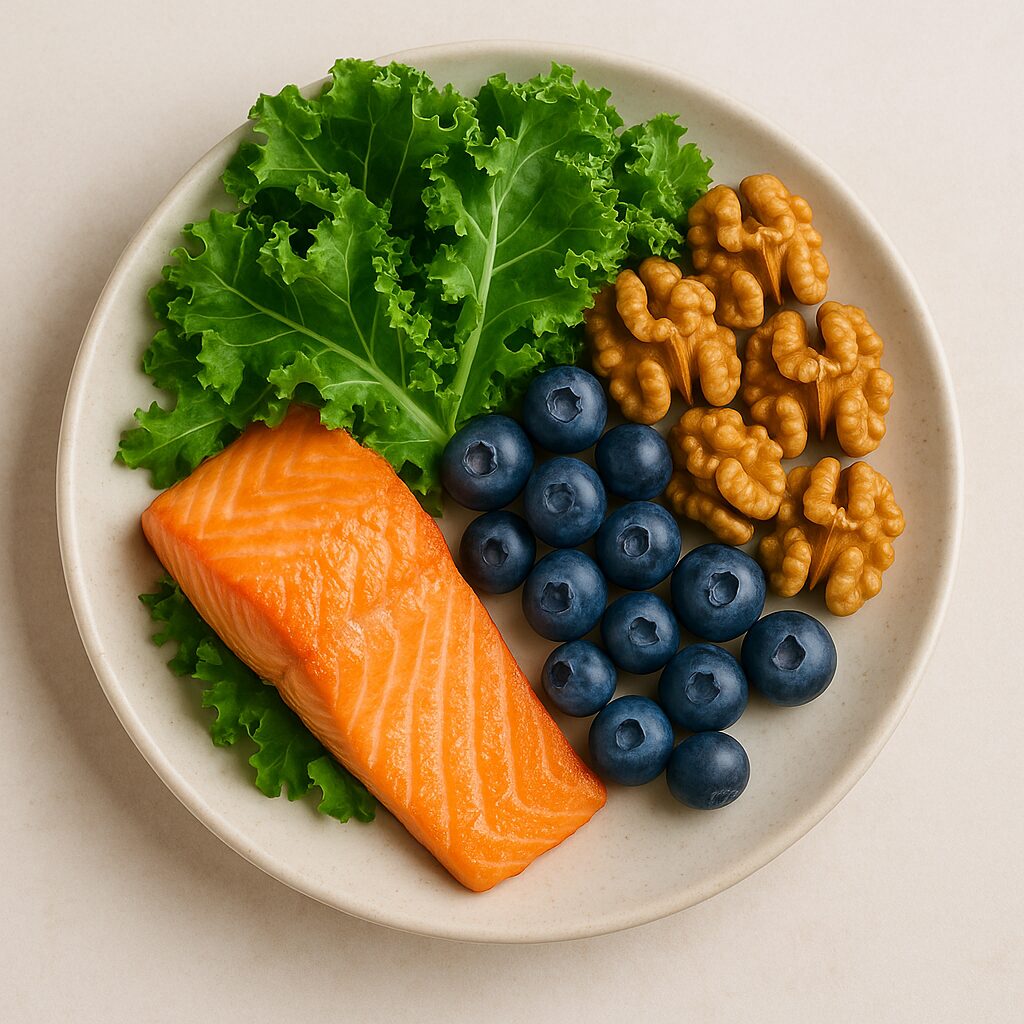Memory function is closely linked to diet and lifestyle. While age-related decline is natural, certain foods and nutrients may help support brain health and slow memory loss. This article highlights key nutrients, recommended foods, and practical dietary habits that may contribute to stronger memory.

1. Omega-3 Fatty Acids
Omega-3s such as DHA and EPA are essential for brain cell membranes and nerve signaling. Sources include salmon, mackerel, tuna, chia seeds, flaxseeds, and walnuts. Regular intake may help maintain cognitive performance.
2. Antioxidant-Rich Foods
Oxidative stress may damage brain cells. Berries, citrus fruits, spinach, and broccoli provide vitamin C, vitamin E, and polyphenols that may protect against inflammation and support memory.
3. Whole Grains and Complex Carbohydrates
Whole grains like oats, brown rice, and quinoa release glucose steadily, avoiding sudden spikes that may impair focus. Balanced carbohydrate intake supports stable energy for the brain.
4. B Vitamins
Vitamin B6, B12, and folate contribute to neurotransmitter production. Eggs, legumes, leafy greens, and poultry are reliable sources. Deficiency may be linked to memory decline.
5. Essential Minerals
Magnesium supports nerve transmission, while zinc plays a role in brain cell growth. Nuts, seeds, seafood, and whole grains may provide these important nutrients.
6. Hydration
Even mild dehydration may reduce concentration and short-term memory. About 1.5–2 liters of water per day is generally recommended, with limited caffeine and alcohol intake.
7. Foods and Habits to Limit
Excess sugar, processed foods, trans fats, and heavy alcohol use may negatively affect memory. Moderation is key to maintaining long-term brain health.
🍀
A healthy diet rich in omega-3s, antioxidants, vitamins, and minerals may support memory and brain function. By balancing hydration and limiting harmful foods, individuals may better protect memory across the lifespan.
References and Further Reading
World Health Organization (WHO) – Brain Health and Nutrition
National Institutes of Health (NIH) – Nutrition and Cognitive Function
Harvard T.H. Chan School of Public Health – Healthy Eating for Brain Support
※ This article is for general informational purposes only. Dietary effects may vary, and professional consultation is generally recommended for personalized advice.